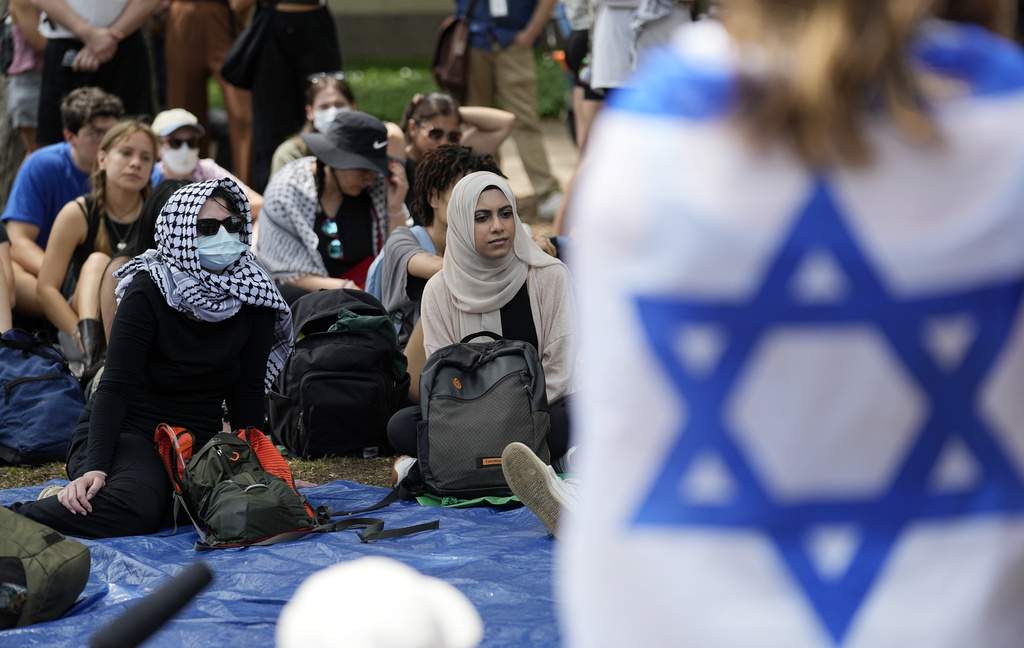It is easier to support the idea of free expression that one favors than it is to facilitate manifestations of speech that one finds offensive. The recent adoption in Texas of S.B. 2972 regulating free speech on public college and university campuses, illustrates the point. It has been signed by Republican Gov. Greg Abbott and is set to go into effect on Sept. 1.
Earlier state laws had expanded speech
For many years, the conservative Texas legislature had railed against free-speech zones, which lawmakers thought were being used to promote wokeness by limiting the speech of those opposing liberal university policies. In 2019, Texas became the 17th state to adopt a law granting wide speech rights throughout college campuses. The 2019 law prohibited public colleges from quarantining expressive activities in the open outdoor areas of campus; prohibited institutions from assessing fees on events, unless those fees are set using only content-neutral and viewpoint-neutral criteria; and protected student organizations from content or viewpoint-based discrimination.
New laws limit expressive activities and shared governance
The new law eliminates a requirement that the common outdoor areas of campuses be considered traditional public forums and imposes limits on “expressive activities.” These include banning encampments or wearing masks during campus protests, using microphones or drums that might interfere with classes, engaging in expressive activity from 10 p.m. to 8 a.m., and limiting disruptive activities during the last two weeks of classes.
Another recently adopted law, S.B. 37, limits university shared governance. Under the law, faculty senates, which were designed to provide faculty input into academic decision making, now exist at the sufferance of governing boards, and college and university presidents now make half of the appointments. This law also creates a university ombudsman with authority to monitor compliance and recommend the loss of state funds for non-complying higher educational institutions.
The laws, which resemble laws adopted in Arizona, Indiana, and Ohio, are largely in reaction to campus protests in favor of Palestinians after the terrorist attacks on Israel on Oct. 7, 2023. Critics charged that these disruptive protests promoted anti-Semitism, which threatened Jewish students.
The Texas laws come at a time when the Trump Administration has cut off federal grant funding to colleges that it thinks is in any way connected to diversity, equity and inclusion (DEI) policies; pressured colleges and universities to fire top administrators that they thought promoted DEI policies or were too permissive with respect to student protests; sought to ban foreign students from entering the United States and deport non-citizen students for exercising their First Amendment rights; threatened to withhold accreditation from institutions that oppose administration policies; and altered student loan requirements.
Possible flaws include vagueness, overbreadth, chilling effect
Legislative defenders are largely relying on the idea that institutions have the right to impose reasonable time, place and manner restrictions, but existing precedents require that such regulations be reasonable. Courts might strike down such laws if they perceive them to be “void for vagueness,” “overly broad,” lacking content neutrality, or as having a “chilling effect” on First Amendment rights.
The regulation of “expressive activity,” broadly defined as “any speech or expressive conduct protected by the First Amendment,” is especially problematic. Critics argue that the law “is so absurdly broad it could theoretically be used to stop a group of students from discussing politics on a campus bench at night. That’s not security; it’s suppression” (Benitez and Friedman 2025).
The laws limiting faculty governance could further erode the academic freedom that has long fostered free inquiry in the United States and that has served as an aspirational model for other democratic nations.
John R. Vile is a professor of political science and dean of the Honors College at Middle Tennessee State University.
SEE ALSO
Campus Free Speech Protection Laws
First Amendment Rights of Colleges and Universities
Stop W.O.K.E. Act (Florida) (2022)
Time, Place and Manner Restrictions
The Woke Movement and Backlash
FURTHER READING
“All the ways the Trump administration is going after colleges and universities,’ by Elissa Nadworny, NPR, June 10, 2025.
“How Texas is wielding freedom of speech as a political weapon,” by Austin Sarat. The Hill, July 7, 2025.
“Lawmakers approve bill limiting protests at public universities,” by Jessica Priest, Texas Tribune, May 17, 2025.
“State laws threaten to erode academic freedom in U.S. higher education,” buy Isaac Kamola, May 29, 2024.
“Texas Governor Signs Bill to Limit Expressive Activity on Campuses,” by Johanna Alonso, Inside Higher Education, June 23, 2025.
“Texas just gutted free speech on college campuses. Is your state next?” by Laura Benitez and Jonathan Friedman, PEN America, published in The Washington Post. July 14, 2025.
“Texas Passed a Law Protecting Campus Speech. It’s on the Verge of Rolling It Back.” The New York Times, June 18, 2025.
“Trump Administration Uses Obscure Immigration Law to Threaten Campus Free Speech,” by Sita Nataraj Slavov and Alan D. Viard, AEI, June 11, 2025.

